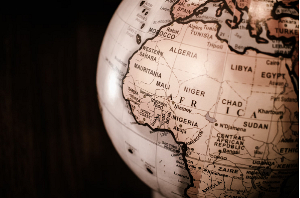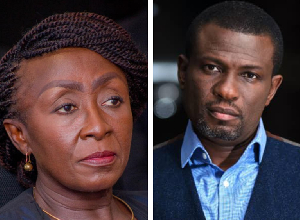Ghana has seen massive strides in gaming. The industry has been a boost to economies in lots of parts of the world so it is little surprise to see so many Ghanaians pushing toward it being bigger there.
Global game jams have even been seen in hotspots like Accra. Many people are now seeing gaming as a career option (game development) and there is a huge number of players taking up new games.
Infrastructure changes and quicker internet speeds are some of the main reasons for this huge growth, of course.
Esports Growth
Esports is becoming much bigger across Africa. Asia and America are the best-known continents for this hobby and a lot of people associate them with esports games, but this isn’t necessarily the only place for people to play.
The African Esports League has proved otherwise, with LoL (League of Legends) tournaments taking place on the continent. Growth in loads of countries means more of these tournaments are likely to take place. Even people not playing the game now have access to the games as forms of entertainment.
Streaming is one way that people get involved with LoL and other esports games, and LoL betting is also proving to be popular in the modern age. Just like people would place bets on football fixtures, they are also exploring gambling on esports games.
A huge rise in esports in Africa has partially come from the increasing availability of affordable internet access. Ghana (along with other countries) has seen significant investments in telecommunications, and this has led to faster and more reliable internet.
People find it easier to play online multiplayer games and esports tournaments without the latency issues that can be super frustrating.
Ghana alone is showing a growth of over 8% in the video gaming industry, and a lot of this is coming from online games like LoL and other console games. Hundreds of millions of dollars are now generated by gaming in the country, and the number is even higher in other African countries.
Console Gaming in Africa
Anyone can see that the affordability of gaming consoles has improved, with more budget-friendly options entering the market and helping more people to afford the consoles. Plus, the availability of gaming consoles has made it easier for consumers to purchase them.
Accra has seen a big boost in gaming cafes and lounges across urban areas to give access to console gaming for those who might not own a console. Gaming cafes are now social hubs and people go to them to watch live streams of international gaming events. Other cities are also seeing similar game hubs. Some are following the footsteps of South African hubs that have been around for some time.
More Ghanaian people are going to South Africa after some agreements from the government to encourage tourism and will experience what the culture is like in this country, where esports and console gaming is massive.
Mobile Game Growth
Statistics place the number of smartphone users in Ghana at over 15 million. Hundreds of millions across the continent are playing games on mobiles. The expansion of mobile internet networks means people can actually access these games – mobile gaming has become the most accessible form of gaming for millions of Africans.
Games include a lot of free-to-play titles as well as loads of genres, which have made mobile gaming an integral part of daily life for many. Mobile gaming often serves as an entry point for those new to the gaming world who don’t then have to go and buy a PC or a console to play.
Ghana’s gaming sector is also benefiting from the creativity and innovation of local game developers. Leti Arts is one of these developers, they’ve got a lot of backing and have become a big name since starting in Accra. Leti Arts has been featured globally on the BBC and other platforms, and they’re proud of the heritage. Sweave is one of the popular titles they’ve released. Developers working for the country make games that showcase Africa and are proud of the continent.
Mobile gaming is only likely to grow, so that means we’re probably going to see even more of these types of companies popping up around the country and elsewhere, with skills growing too, meaning developers that can produce and release games for a wide audience.
Conclusion
Ghana is proving to be a hub for some new technologies and gamers definitely have the appetite to play the games produced locally. People are becoming more familiar with games from elsewhere, too, and we’re seeing a lot of the population of Africa getting involved with mobile gaming and casual gaming, too. African esports can also provide a tourism opportunity and bring revenue, so it is being encouraged by a lot of countries in the continent.
Sports News of Friday, 27 September 2024
Source: League of Legends Ultimate Fintech

















